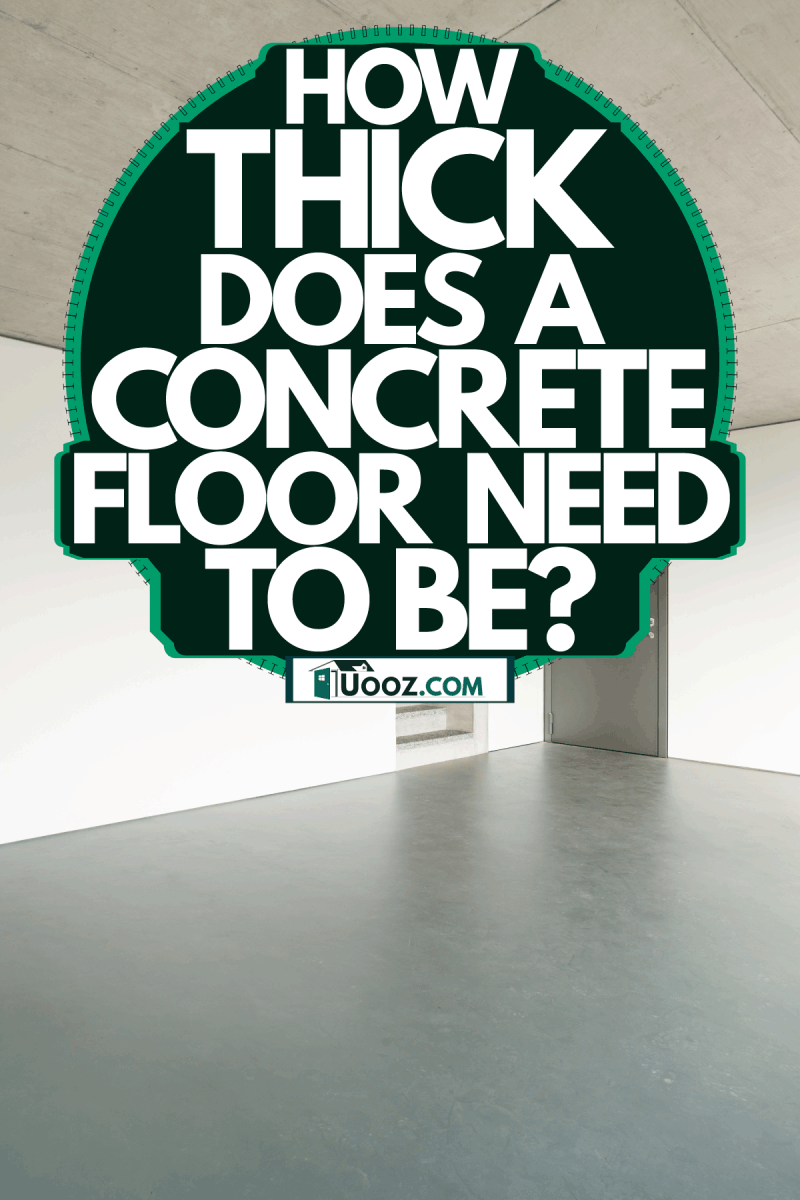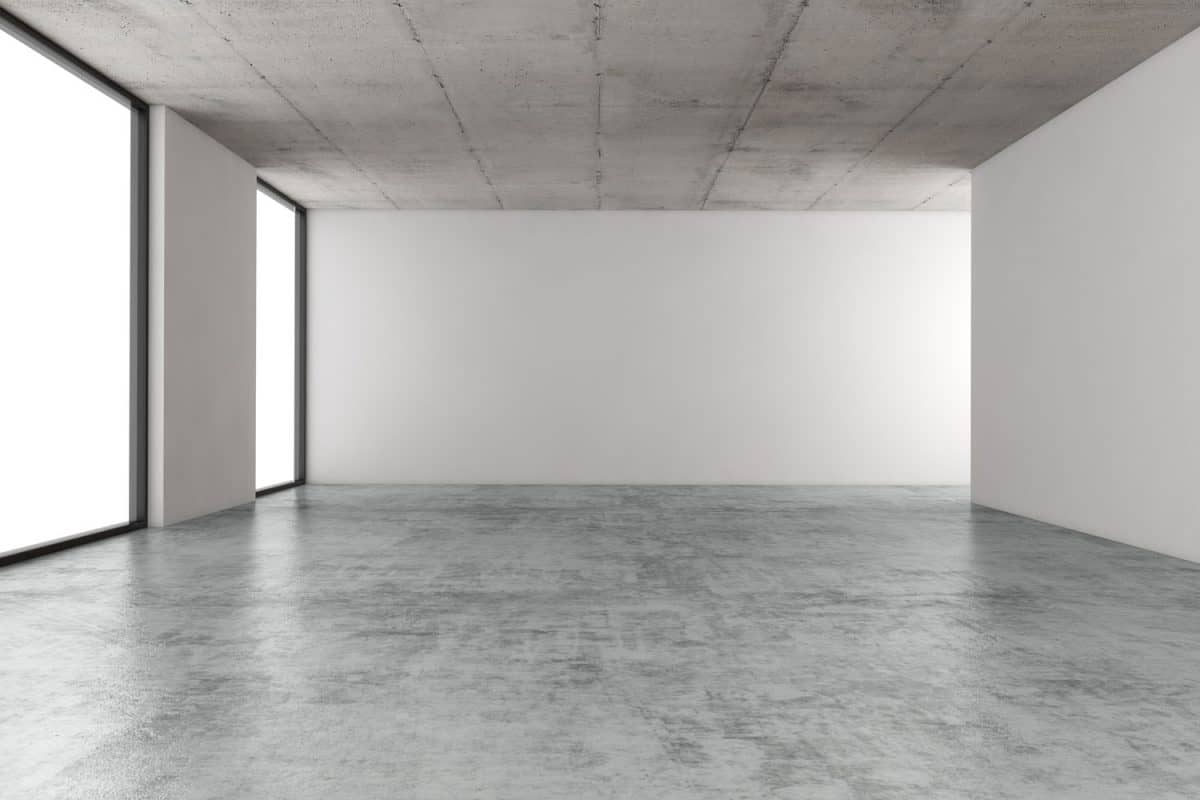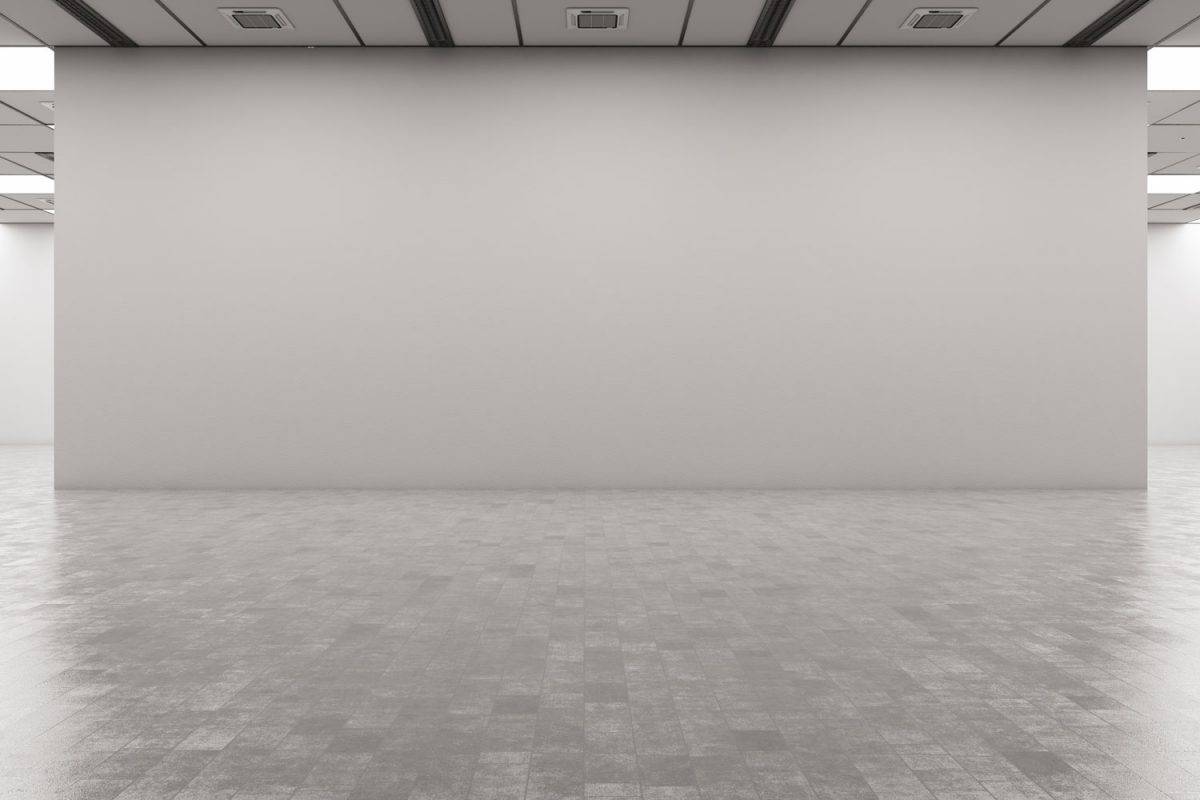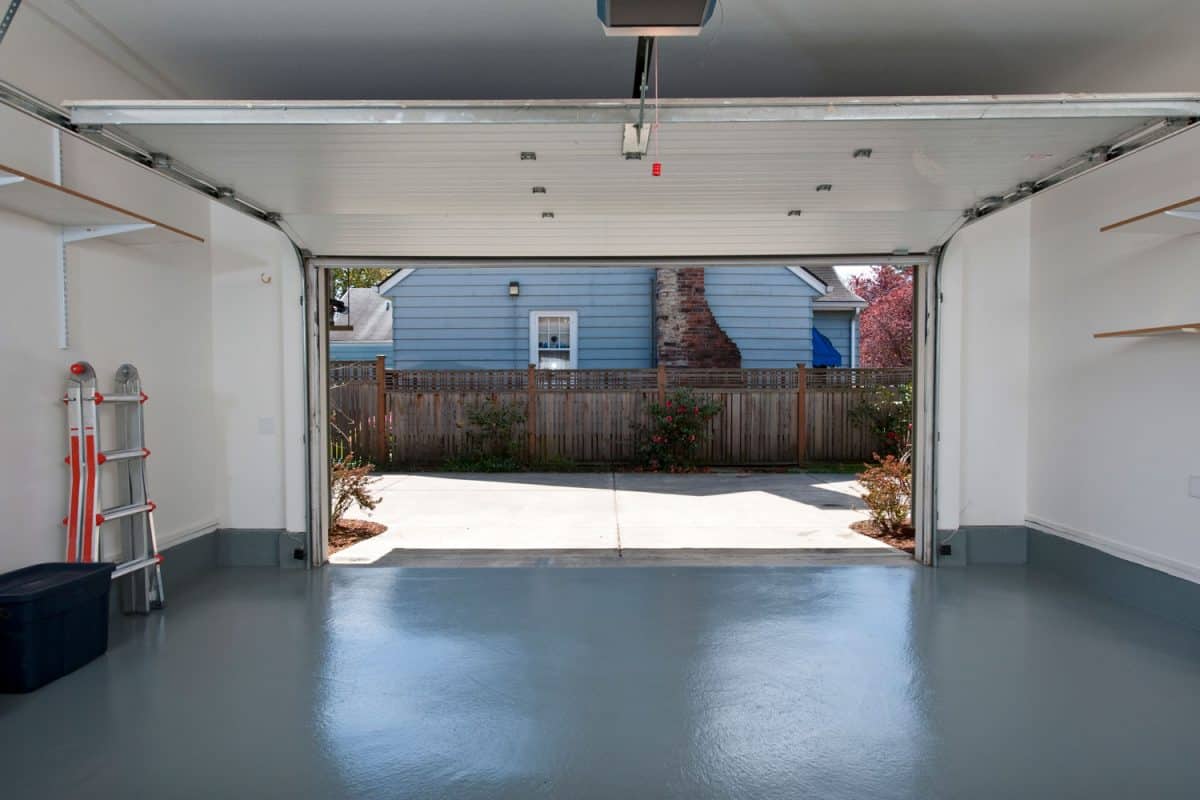Figuring out how thick your concrete floors need to be can be tough. Do you plan on installing concrete flooring into your home but don't know how thick you need to make them? We did the research to bring you the answer.
A residential concrete floor should be around four inches thick. If you plan on your concrete floors handling heavy loads, five to six inches is more appropriate. With that said, the minimum thickness of concrete flooring is around two inches, although we wouldn't recommend choosing to go that thin.
As we begin, we will cover all things concrete and discuss how thick your floors need to be. Whether you plan to add a new addition to your home or have a larger-scale development you're working on, we've got you covered. With that said, let's dive right into this post!

How Thick Are Indoor Concrete Floors?
Typically, indoor concrete floors are around four inches thick. This is industry standard and ensures that your concrete flooring will last long and won't have run into structural issues in the future.

Especially for residential flooring, you want your concrete to be able to hold heavy furniture and withstand a bit of movement depending on where you are located.
How Thin Can A Concrete Floor Be?
When it comes to how thin concrete flooring can be, two to three inches is about the thinnest you can go. If your concrete is on the thinner side, you will have to make sure it is crack and imperfection-free, so it won't become a safety issue once heavy furniture and decor go on top of it.
Although concrete is pretty strong, installing a cracked slab or not pouring deep enough can cause significant structural issues within your home.
Can You Do Concrete Floors Upstairs?
For anyone wanting to do concrete floors upstairs, we've got good news for you. Concrete flooring is completely safe to install upstairs as long as your home's support beams and bearing walls can support it.
To figure this out, you will need to speak with an engineer so they can take a look at your home's support system and determine how thick your concrete floors can safely be.
How Thick Should A Second Floor Concrete Slab Be?
Ideally, your second-story concrete flooring should be between three and four inches thick.
Like we covered above, the thickness of second-floor concrete will vary depending on your home's structural engineering, but in general, it shouldn't need to be more than four inches thick.
Especially for those planning multi-level concrete floors, you want to make sure that your home can safely support them without putting stress on its foundation.
Does Floor Area Affect Concrete Thickness?

Generally, the larger your floors area, the thicker your concrete will need to be. The key factors in determining the thickness of a concrete floor are:
- Applied loads
- Durability of concrete
- Fire requirements
- Serviceability requirements such as deflections
- Serviceability requirements such as floor vibrations
- Construction requirements
Of course, some requirements will vary, depending on your project size, but in general, expect to consider these factors before installing/pouring your concrete floors.
Does 6-Inch Concrete Need A Rebar?
If your concrete is more than five inches deep, we recommend using rebar to support it. Especially for concrete flooring in high traffic and heavy load areas, rebar helps relieve pressure and keep your floors from cracking and developing structural issues as time goes on.
Material-wise, stainless steel rebar is the best quality and won't corrode like other materials, but it is a more expensive option.
How Much Weight Can You Put On Two Inches Of Concrete?
Typically, two inches of concrete can hold anywhere from 550 pounds per square inch (psi) to just under 4000. Of course, this depends on what type of concrete you use for your flooring and how long it has been able to set, but it should hold at least 500 pounds per square inch.
How Much Weight Can You Put On Four Inches Of Concrete?
Similar to our previous section, you should be able to put between 3000 and 4000 psi on four-inch concrete. As we mentioned, four-inch concrete is standard for residential construction, so you should be safe to put all of your furniture on it without having to worry about weight.
How Thick Does A Concrete Floor Need To Be For A Garage?

When it comes to the garage, your concrete flooring should be between four and six inches, depending on how heavy your vehicles are. Another thing to consider is whether you have a boat or RV, which will require five to six inches of concrete thickness.
The garage, in particular, should be able to handle 3000 to 4000 psi, which means that thinner concrete won't be a strong enough option.
That said, if you choose to go with concrete over four inches thick, you will need to reinforce it with either wire mesh or rebar to prevent cracking and damage.
Which Is Better: Mesh Or Rebar For Concrete Floors
Between the two, rebar will always be stronger than mesh for supporting thick concrete flooring. Rebar adds a large amount of tensile strength to concrete, which improves its ability to withstand heavy amounts of weight and tension.
On the other hand, rebar is not adjustable like wire mesh, which can make it hard to work with. So, for strength, we recommend using rebar, and for shaping and moveability, we think mesh is more helpful.
Are Concrete Floors Durable?
Durability-wise, concrete flooring is very strong and can handle quite a bit of pressure and movement without becoming damaged. Concrete floors, specifically, aren't prone to cracking, lifting, and moving like other options are, which makes them a hardy choice.
Plus, if you properly seal your concrete floors, they become stain and scratch resistant which is a major bonus. Of course, concrete flooring won't work for everyone's home due to its weight, but if you can install it, we recommend it.
Cryli-Tek Solvent Based Acrylic Concrete Sealer
This solvent-based concrete sealer is professional-grade, high gloss, crack and stain resistant, enhances your concretes natural color, and comes in a one-gallon container.
Check out this concrete sealer on Amazon.
Do You Have To Seal Concrete Flooring?
Although you don't have to seal concrete floors, doing so will extend their lifespan and keep them in good shape. Sealing concrete also helps to stain-proof it, which is essential for residential flooring or areas with high amounts of traffic.
When it comes to which type of sealer we think works best, try to find an acrylic formula with a bit of gloss. Glossier options will give your concrete floors an upscale look and help to make cleaning them easier.
DOMINATOR SG+ High Gloss Decorative Concrete Sealer
This concrete sealer is color-enhancing, solvent-based, has a glossy finish, and covers up to 400 square feet.
Follow this link to view it on Amazon.
Are Concrete Floors Hard On Your Feet?

When it comes to how concrete feels to walk on, it can be hard on your feet. Although concrete isn't texturally uncomfortable, it can be tough to stand on for long periods without a rug or section of carpet.
We would say concrete will be harder than wood or tile, but with area rugs placed in high-traffic areas, your floor shouldn't be as uncomfortable to stand or walk on.
Are Concrete Floors Soundproof?
We found that the thicker a concrete floor, the better airborne sound isolation it will have. The heavier floor essentially works to muffle sound through your space, helping to soundproof it.
That said, concrete flooring can have an echoing effect, which can make your home louder if you don't have sound-absorbing items like furniture, curtains, and carpets.
So although concrete floors won't be completely soundproof, they will muffle sound and help lessen vibrations between the rooms of your home.
To Wrap Things Up
Whether you want to build your dream home or have a large-scale development you're working on, figuring out how thick a concrete floor needs to be is very important. From what we found, residential concrete flooring is usually around four inches thick but can be as thin as two inches.
When it comes to your second or third floor having concrete, you will need to speak with an engineer to ensure your home's support system can handle the weight.
For those wanting to use concrete floors in their garage, we recommend having it be five to six inches if you plan on storing multiple vehicles, an RV, or even a boat.
Regardless, make sure to add rebar or wire mesh to concrete that is thicker than four inches, and don't be afraid to seal your floors to keep them from cracking/staining.
Before you go, be sure to check out these helpful related posts below:
How To Drill Into Concrete Floor [A Complete Guide]
Should You Seal Concrete Floor Before Tiling Or Carpeting?
How To Remove Paint From A Concrete Porch [7 Methods To Try]


